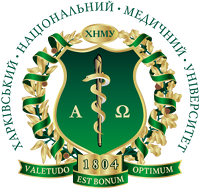Будь ласка, використовуйте цей ідентифікатор, щоб цитувати або посилатися на цей матеріал:
http://repo.knmu.edu.ua/handle/123456789/9262| Назва: | Ethical aspects of clinical practise: “doctor patient” relationships |
| Автори: | Kompaniiets, Kira Ashcheulova, Tetyana Mailula, Lindiwe Rosyn |
| Теми: | “doctor patient” relationship |
| Дата публікації: | 31-бер-2015 |
| Бібліографічний опис: | Mailula L. R. Ethical aspects of clinical practise: “doctor patient” relationships / L. R. Mailula, K. Kompaniiets, T. Ashcheulova // Implementation of bioethics principles in clinical practice : IV International Scientific student's conference dedicated to the 210th anniversary of Kharkiv National Mеdical University, Kharkiv, 31th of March 2015 : abstract book. – Kharkiv, 2015. – P. 35. |
| Короткий огляд (реферат): | Lindiwe Rosyn Mailula, Kira Kompaniiets, Tatyana Ashcheulova Ethical aspects of clinical practise: “doctor patient” relationships. The historical model for the physician-patient relationship involved patient dependence on the physician's professional authority. Believing that the patient would benefit from the physician's actions, a paternalistic model of care developed. Patient's preferences were generally not elicited, and were over-ridden if they conflicted with the physician’s convictions about appropriate care. During the second half of the twentieth century, the physician-patient relationship has evolved towards shared decision making. This model respects the patient as an autonomous agent with a right to hold views, to make choices, and to take actions based on personal values and beliefs. Patients are acknowledged to be entitled to weigh the benefits and risks of alternative treatments, including the alternative of no treatment, and to select the alternative that best promotes their own values. What role should the physician's personal feelings and beliefs play in the physician-patient relationship? Occasionally, a physician may face requests for services, such as contraception or abortion, which raise a conflict for the physician. Physicians do not have to provide medical services in opposition to their personal beliefs. In addition, a nonjudgmental discussion with a patient regarding her need for the service and alternative forms of therapy is acceptable. However, it is never appropriate to proselytize. While the physician may decline to provide the requested service, the patient must be treated as a respected, autonomous individual. Where appropriate, the patient should be provided with information about how to obtain the desired service. |
| URI (Уніфікований ідентифікатор ресурсу): | https://repo.knmu.edu.ua/handle/123456789/9262 |
| Розташовується у зібраннях: | Наукові роботи молодих вчених. Кафедра пропедевтики внутрішньої медицини № 1, основ біоетики та біобезпеки |
Файли цього матеріалу:
| Файл | Опис | Розмір | Формат | |
|---|---|---|---|---|
| тезисы компаниец).docx | 14,68 kB | Microsoft Word XML | Переглянути/відкрити |
Усі матеріали в архіві електронних ресурсів захищені авторським правом, всі права збережені.

